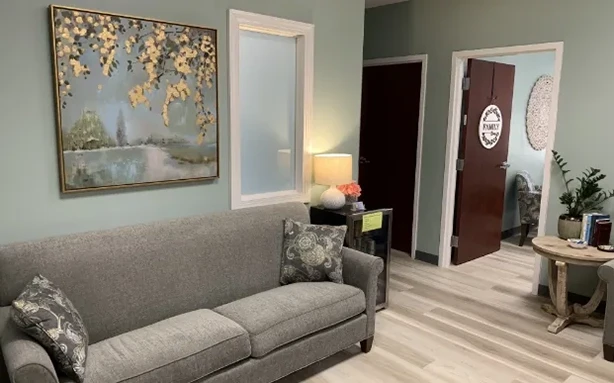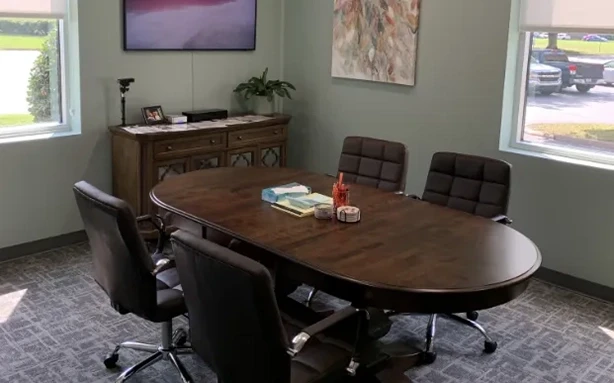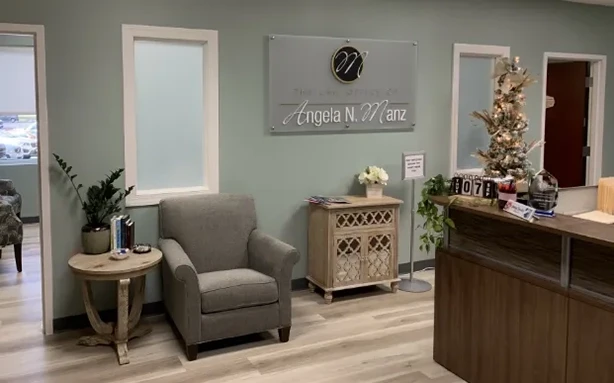Virginia Beach Estate Planning Lawyers
 Whether you are planning for the future or find yourself in a crisis and need help now, having the right legal team is key to making sure your needs are met. Welcome to The Law Office of Angela N. Manz. We believe everyone needs and deserves high-quality legal services for the sake of themselves and their families, and we are proud to serve the diverse communities of Virginia Beach, helping all individuals and families achieve their goals. Reach out to our experienced Virginia Beach estate planning lawyers today, and let’s get started together addressing your immediate needs and planning for the future.
Whether you are planning for the future or find yourself in a crisis and need help now, having the right legal team is key to making sure your needs are met. Welcome to The Law Office of Angela N. Manz. We believe everyone needs and deserves high-quality legal services for the sake of themselves and their families, and we are proud to serve the diverse communities of Virginia Beach, helping all individuals and families achieve their goals. Reach out to our experienced Virginia Beach estate planning lawyers today, and let’s get started together addressing your immediate needs and planning for the future.
Meet Angela Manz
Angela enjoys serving her clients and solving their problems because she is living the life her clients live. Angela belongs to a blended family, like 40% of families in the U.S., so she understands the sensitive and unique issues blended families face when dealing with estate planning. Angela was raised in a military family (and has a hubby who is a retired Navy Chief), so she knows firsthand about estate planning for military families and how veterans benefits fit into the picture. Meanwhile, Angela is raising a school-age child and caring for a grandparent with Alzheimer’s while leading a bustling and successful law firm. Angela knows where you are coming from and is ready to help.
Not to mention, Angela is a highly experienced and capable attorney as well. In particular, she has been recognized by the Virginia Law Foundation as a Qualified Master Counselor in Trusts and Estates Practice. This prestigious form of accreditation indicates that Angela has taken a rigorous three-year course of study and met other practice-specific and peer-review criteria that demonstrate her ability to perform at a high level in this important area of the law. Only a small handful of attorneys currently hold a Master Counselor designation in Virginia trusts and estates practice. What is a “small handful”? When we last checked, only seven attorneys in the Commonwealth have achieved Master Counselor status in trusts and estates.
Angela’s name is on the door, but you get more than Angela Manz at The Law Office of Angela N. Manz. Angela has put together a great team with other attorneys and team members who operate together in a team approach to client service. Every member of the firm gets to know every client, and our whole team is here to take care of you. Each of us brings something special to the table, and together we make sure your needs are met.
With Us, It’s Personal
At The Law Office of Angela N. Manz, we do more than perform a service and see you out the door. Due to the nature of our practice, we find ourselves helping clients throughout their lifetimes and through all their life changes and changing needs. We’ve built decades-long and lifelong relationships with our clients and their families and are there whenever they need us. Whether you have children with special needs in your life, disabled adults or aging parents to care for, or you are simply looking to secure your future to live your best life and leave a legacy behind, The Law Office of Angela N. Manz is here for you.
We love the diversity we find here in the communities of Virginia Beach and Chesapeake. We’ve served individuals of all ages, socioeconomic statuses, and ethnicities, including members of Virginia Beach’s vibrant African American and Filipino communities and many others. We’ve helped heterosexual couples and those who identify as LGBTQ+, and we’ve served families blended in every way imaginable. We love getting to know people from different cultures and walks of life and tailoring our services to meet their specific needs. We know that everyone can benefit from estate planning at any age and that almost everyone will confront similar issues as their families grow through the inevitable stages of life. We are here for all those times with knowledge, skill, compassion, and dedication.
Experience and Capability With Complex Issues Over a Diverse Array of Legal Matters
Our estate planning and elder law firm covers a wide range of legal matters designed to meet your needs completely and comprehensively. Whether your issues are straightforward or complex, our years of experience in the field means we will be familiar with your areas of concern and be ready to tailor a customized solution that precisely fits your needs.
Below is a quick glance at the firm’s main areas of practice:
- Care Management – The long-term healthcare management of a loved one can put a tremendous physical and emotional burden on a family. If you are trying to find answers to the difficult questions surrounding the care of a loved one, we can help.
- Elder Law and Medicaid Planning – For most Americans, Medicaid eligibility is essential for affording long-term care in a nursing home or assisted living facility. With proper planning, we can help you qualify while also ensuring your spouse, children and grandchildren are provided for.
- Estate Planning – Estate planning means making sure you are cared for during your lifetime with enough assets left over to leave a legacy to your family. We take the time to understand your needs and craft the right set of wills, trusts, powers of attorney and advance directives to meet your goals.
- Guardianships and Conservatorships – Proper planning can avoid the need for a guardianship or conservatorship, and we can help you do just that. When a guardianship or conservatorship is necessary and appropriate, we’re here to guide you through the process efficiently and effectively.
- Probate and Trust Administration – Probate is the court-supervised distribution of a person’s assets after he or she has passed away. It is a time-consuming, frustrating, public and needlessly expensive process. We help you minimize or avoid probate and get through the process without a hassle. And while administering a trust is less cumbersome than probate, we help Trustees navigate their duties and carry out trust terms properly.
- Veterans Benefits – Our team is here to help you understand the benefits you could be entitled to. Many benefits may be available, but the application process can be confusing and complex. Not to worry, that’s why we are here. You’ll get the advice and technical assistance you need to get the benefits you deserve.
Contact The Law Office of Angela N. Manz in Virginia Beach
Help is only a click or a call away. Contact us online or give us a call at 757-271-6275 to get started today. Our Virginia Beach estate planning attorneys look forward to meeting you, getting to know you, and helping you through a lifetime of legal needs.

















